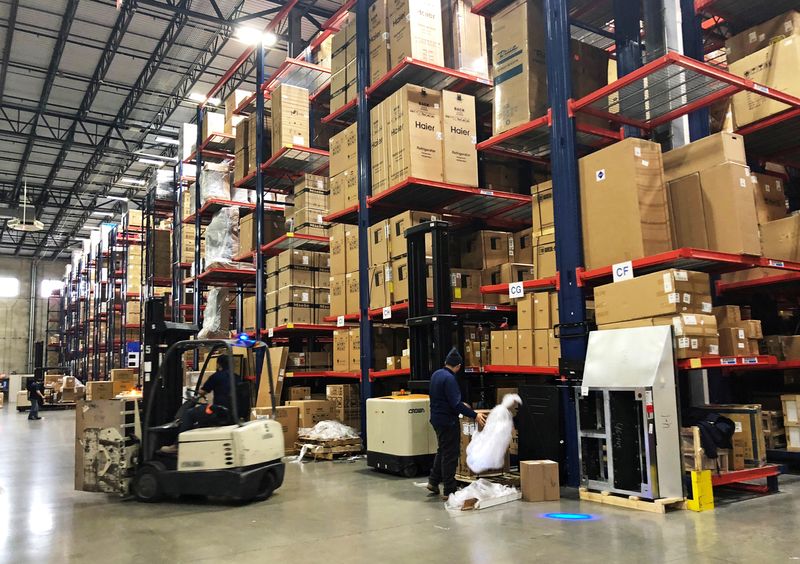WASHINGTON (Reuters) - U.S. wholesale inventories fell for a second straight month in November, suggesting that a slow pace of inventory accumulation could undercut economic growth in the fourth quarter.
The Commerce Department's Census Bureau said on Wednesday that wholesale inventories slipped 0.2% as estimated last month. Stocks at wholesalers dropped 0.3% in October. Economists polled by Reuters had expected that inventories would be unrevised.
Inventories are a key part of gross domestic product. They declined 3.0% on a year-on-year basis in November.
Economists expect business inventories to subtract from GDP in the fourth quarter. Growth estimates for the October-December quarter are as high as a 2.2% annualized rate. Private inventory investment contributed 1.27 percentage points to the economy's 4.9% growth pace in the third quarter.
Businesses are holding back on inventory accumulation in anticipation of slower demand this year following 525 basis points worth of interest rate hikes by the Federal Reserve since March 2022. The government reported on Tuesday that imports of consumer goods dropped to a one-year low in November, contributing to pushing down overall goods imports 2.3%.
Wholesale motor vehicle inventories dropped 1.1% in November after falling 0.4% in October.
There were also decreases in wholesale stocks of lumber, computer equipment, metals, electrical equipment, groceries, apparel, petroleum, chemicals and hardware. But stocks of machinery and professional equipment rose.

Excluding autos, wholesale inventories slipped 0.1% in November. This component goes into the calculation of GDP.
Sales at wholesalers were unchanged in November after declining 1.5% in October. At November's sales pace it would take wholesalers 1.34 months to clear shelves. That was down from 1.35 months in October.